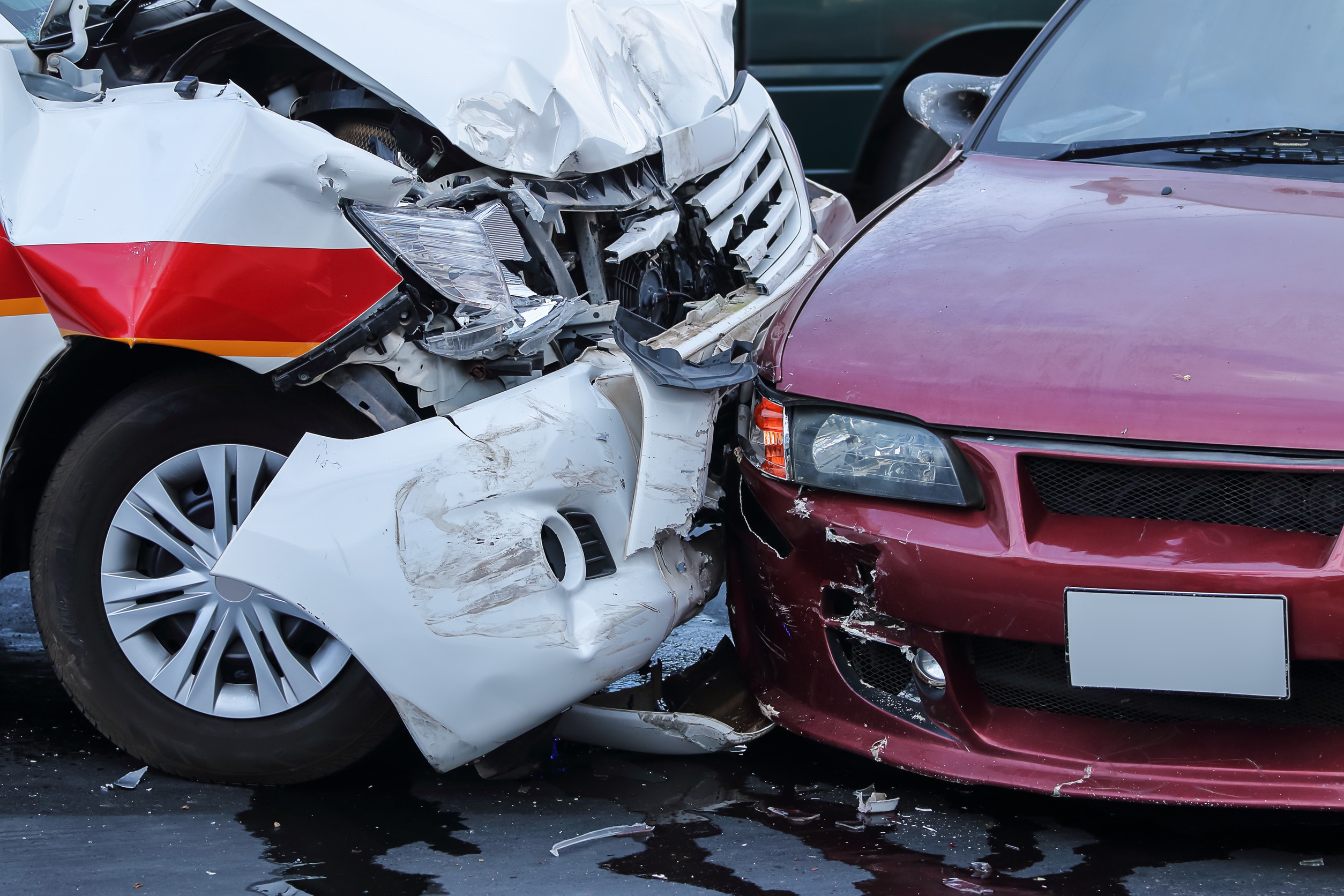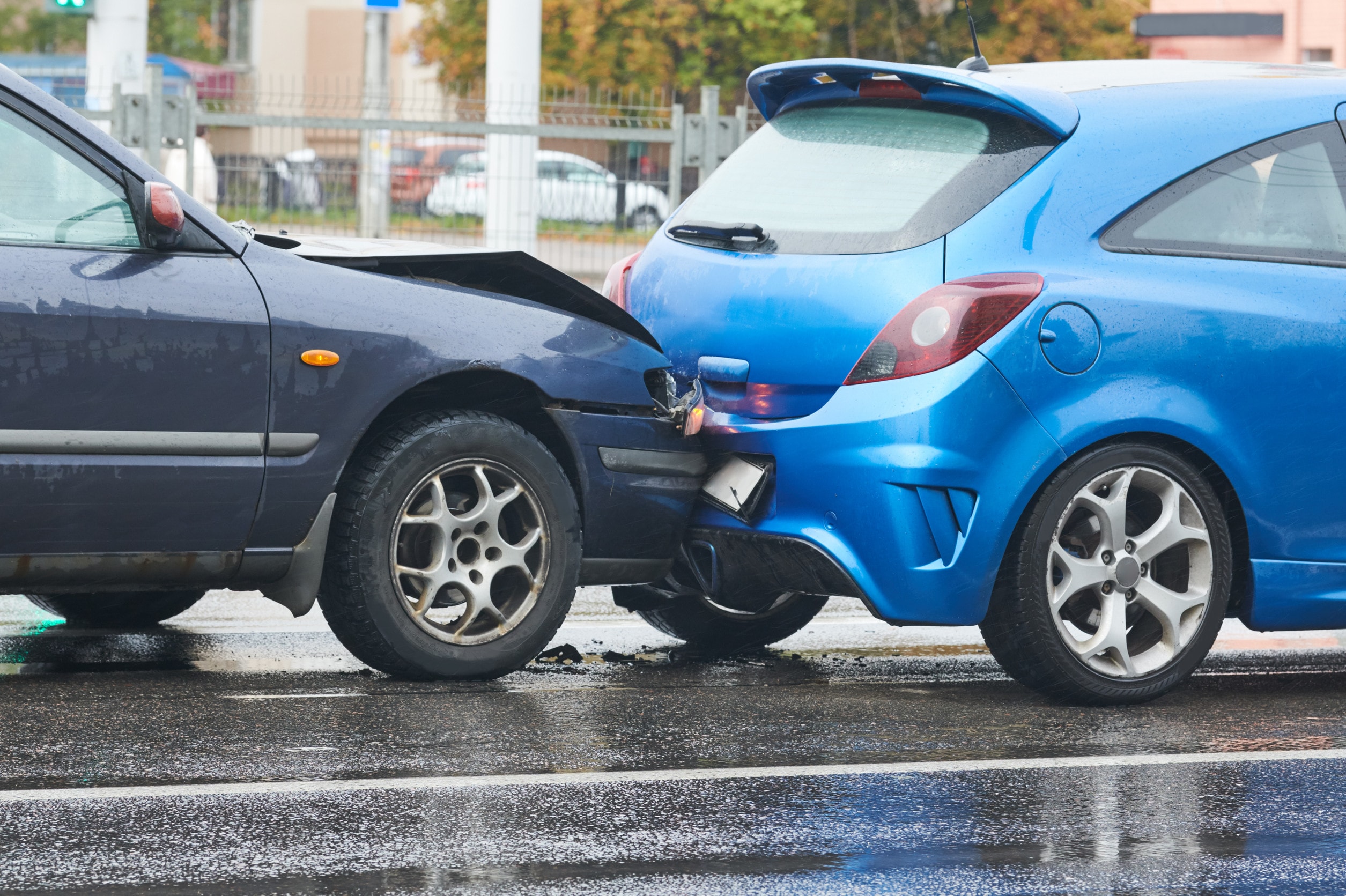A Guide To Making Car Accident Claims
Every year, thousands of people suffer injuries in road traffic accidents. If you’ve been injured in an incident on the road that wasn’t your fault, you may be wondering about what steps are involved in making car accident claims.
This comprehensive guide covers everything you need to know, from establishing eligibility for starting a claim and collecting evidence to understanding how road traffic accident compensation is calculated and the support available through a No Win No Fee agreement. No matter the circumstances of your car accident injuries, our guide demystifies the process of claiming compensation for you.
What You Need To Know
- You may be able to make a claim for a car accident if someone else was at fault for your injuries.
- You might still be eligible to seek compensation even if you were partially at fault for the accident.
- Typically, you will have 3 years from the date of the accident to start your personal injury case.
- If your claim is successful, you may receive compensation for your injuries and the financial losses caused by them.
- You may be able to make a No Win No Fee claim using a solicitor from our panel.
Contact Us
If you’re ready to claim personal injury compensation or simply want confidential advice, our friendly advisory team is on hand to help. Contact them today for free, no-obligation guidance:
- Call us on 020 3870 4868
- Use our claim online form
- Speak to us using our live chat feature
Frequently Asked Questions
- How To Make Car Accident Claims
- Can I Claim For A Car Accident With An Uninsured Driver?
- Am I Able To Claim If I Was Involved In A Hit And Run Car Accident?
- Is There A Way To Claim Against A Foreign Vehicle?
- How Much Compensation For A Car Accident?
- What Evidence Will I Need To Support My Car Accident Claim?
- How Long Is The Car Accident Claims Time Limit?
- Why Should I Get Help From A Car Accident Claims Solicitor?
- No Win No Fee Car Accident Claims
- More Information
How To Make Car Accident Claims
To make car accident claims, you need to show how someone else was at fault for your injuries. In order to do so, it has to be shown that:
- You were owed a duty of care at the time of your injuries.
- That duty of care was breached in some way.
- You resultingly suffered injuries.
Drivers, passengers, cyclists, pedestrians, and motorcyclists owe one another a duty of care as fellow road users. That means they must use roads in a way that avoids injury to each other as well as to themselves. They must also follow the Road Traffic Act 1988 and the Highway Code. Failing to do so may breach the duty of care owed while on the road.
Examples of breaching the duty of care include:
- Driving under the influence of alcohol or drugs.
- Speeding or ignoring traffic signals.
- Using a mobile phone or being otherwise distracted while driving.
- Failing to give way or stop at pedestrian crossings.
- Tailgating or aggressive driving behaviour.
If you are injured in a car accident because another road user failed to uphold their duty of care, you may have grounds to claim compensation.
Can I Claim If I Was Partially To Blame For The Car Accident?
Yes, you can still make a claim even if you were partially to blame for the car accident. In such circumstances, you would make a claim on the basis of split liability. For example, if you failed to signal and collided with a speeding car, you might both share responsibility for the accident.
In split liability claims, compensation may be reduced to reflect the level of blame someone has for an accident. So, if you are found to be 25% responsible, your compensation will be reduced to 75% of what you would’ve got had you not contributed to the accident.
What If The Accident Happened Abroad?
If your accident happened abroad, you may still be able to make a claim under certain circumstances. This applies to both EU and non-EU countries.
Claims for accidents abroad may depend on:
- The country’s laws and whether a compensation system exists.
- Whether your travel or vehicle insurance policy covers such claims.
- If the accident involved a UK-insured driver.
If you’d like further guidance on how to make car accident claims, please reach out to our advisory team. Our advice services are live 24/7, so you can always be sure to get a quick response.
We are here to help you
Here at UKlaw our expert advisors are on hand 24 hours a day 7 days a week to assess your compensation claim. Should you require free legal advice we can connect you to a specialist solicitor.
Can I Claim For A Car Accident With An Uninsured Driver?
You may be able to claim for a car accident with an uninsured driver through the Motor Insurers’ Bureau (MIB). As a not-for-profit organisation, the MIB is funded by insurance premiums and has certain criteria that need to be met in order to make a claim under its Uninsured Drivers’ Agreement.
Should you be unsure whether a driver is uninsured, you have the option of checking their details through the Motor Insurance Database (MID) or having your insurance provider do so on your behalf.
Our advisors are here to answer any questions you have about accidents involving uninsured drivers. Alongside their tailored guidance, they can provide you with a free, no-obligation case assessment.
Am I Able To Claim If I Was Involved In A Hit And Run Car Accident?
Yes, you can still make a claim if you were injured in a hit and run car accident. How you make a claim will depend on the circumstances of the accident:
- Traceable driver: If the police identify the other driver and they are insured, a claim can be made through their insurer.
- Untraceable driver: If the driver is never found, you can claim through the MIB under their Untraced Drivers Agreement.
No matter the circumstances of your road traffic accident, you may have grounds to claim if you meet the eligibility criteria discussed earlier. Get in touch today to see if you have a case for compensation.
We are here to help you
Here at UKlaw our expert advisors are on hand 24 hours a day 7 days a week to assess your compensation claim. Should you require free legal advice we can connect you to a specialist solicitor.
Is There A Way To Claim Against A Foreign Vehicle?
The Green Card scheme offers a way to make a claim through the MIB against a foreign-registered vehicle. You will need:
- The vehicle’s registration number.
- Insurance details, if available.
- A full account of how the accident happened.
This scheme covers over 40 countries, including all 30 members of the European Economic Area.
Contact our team now to discuss your circumstances and find out how to make car accident claims through the MIB.
How Much Compensation For A Car Accident?
The amount of compensation you may receive in a successful car accident claim depends on a variety of factors, such as:
- The severity of your injuries.
- The impact on your mental health and whether you developed a psychological condition like depression.
- The impact on your life and ability to work.
- Whether you suffered long-term or permanent disability.
Compensation in a personal injury claim is typically divided into 2 categories:
- General damages cover the pain, suffering, and loss of amenity (the impact on your daily life) caused by the injury. This includes both physical pain and any psychological impact, such as post-traumatic stress disorder (PTSD).
- Special damages compensate you for the financial losses resulting from your injuries.
To calculate general damages, solicitors may refer to the Judicial College Guidelines (JCG), a publication that compiles suggested compensation brackets based on an injury’s type and severity.
You can see some JCG brackets below but please be aware that the first entry isn’t a JCG figure, and that the table’s inclusion is for guidance only.
| Injury | Compensation |
|---|---|
| Multiple Very Severe Injuries Plus Financial Losses, Including Lost Earnings | Up to £1,000,000+ |
| Very Severe Brain Damage | £344,150 to £493,000 |
| Moderately Severe Brain Damage | £267,340 to £344,150 |
| Severe (i) Neck Injuries | In the Region of £181,020 |
| Severe Arm Injuries | £117,36 to £159,770 |
| Severe Pelvis/Hip Injuries (iii) | £47,810 to £64,070 |
| Moderate Back Injuries (i) | £33,880 to £47,320 |
| Moderate Shoulder Injuries | £9,630 to £15,580 |
| Whiplash and Psychological Injuries Lasting Over 18 To 24 Months | £4,345 |
| Whiplash Lasting Over 18 To 24 Months | £4,215 |
Special damages, on the other hand, reimburse financial losses directly linked to the injury. These can include:
- Loss of earnings if you’ve had to take time off work or cannot return to your job.
- Medical expenses such as prescriptions, private treatment, physiotherapy, or counselling.
- The cost of attending medical appointments or travel made necessary due to the accident.
- Care costs if you need help with daily activities from a professional carer or family member.
- Vehicle repairs or replacement costs if your car was damaged or written off.
To claim special damages, you must provide evidence such as receipts, invoices, payslips, and bank statements.
We are here to help you
Here at UKlaw our expert advisors are on hand 24 hours a day 7 days a week to assess your compensation claim. Should you require free legal advice we can connect you to a specialist solicitor.
How Do I Make A Claim For Whiplash?
To make a claim for whiplash, you may be able to pursue compensation through an online government portal. The Whiplash Injury Regulations 2021 introduced changes to how people make claims for whiplash injuries. These regulations affect claims involving road traffic accidents in England and Wales and were introduced as part of the Whiplash Reform Programme.
It established a new fixed tariff for certain whiplash claims where the following criteria are met:
- You were a driver or passenger at the time of the accident.
- Your total damages are £5,000 or less.
- You are 18 or older.
Unsure about your options for claiming compensation? Get in touch today for personalised guidance and get all the information you might need about making car accident claims.
What Evidence Will I Need To Support My Car Accident Claim?
The evidence you need to support your car accident claim must show who was at fault and how they caused your injuries. Evidence provides factual backing that helps your solicitor build a strong case on your behalf. It supports the sequence of events, the severity and extent of the injuries caused, and the impact on your day-to-day life. Essential evidence includes:
- Medical records showing the extent of your injuries, what treatments you’ve received, and how your overall wellbeing has been impacted.
- Photographs of your injuries, the accident scene, and any vehicle damage.
- Witness contact details. With this information, your solicitor can obtain written statements to support your case.
- A police report if applicable.
- Contact details for the driver, their insurance details, car registration, and the make and model of the vehicle they were driving.
You may also be asked to attend a medical examination by an independent medical expert. If you work with a solicitor from our panel, you’ll get all the help you need with collecting evidence to support your car accident claim. They will also be able to organise any medical assessment on your behalf. Get in touch with our advisors today to find out more.
How Long Is The Car Accident Claims Time Limit?
Under the Limitation Act 1980, there is a 3-year time limit for starting car accident claims. However, it’s important to keep in mind that this time limit only refers to when a claim must begin, and there are no deadlines for how long the process itself might take to conclude.
There are exceptions for minors and those with mental incapacity as neither group can make their own claims. Therefore, time limits are paused unless:
- A minor turns 18, meaning they have 3 years to claim up to their 21st birthday. However, an adult can help claim on their behalf before their 18th birthday. To do so, they would need to take on the role of a litigation friend.
- An adult regains their mental capacity. If that happens, then the standard 3-year time limit will apply from whatever date that recovery occurs. As with those who are under 18, a litigation friend can help claim on their behalf while time limits are paused.
If you’re at all unsure about whether you have enough time to start a car accident claim, the best thing to do is speak to an advisor for a free case assessment. Next, we take a look at why you might want to consider working with a solicitor.
Why Should I Get Help From A Car Accident Claims Solicitor?
Choosing help from our panel of car accident claims solicitors offers key advantages that can make a significant difference to the outcome of your case. They have represented clients across the country and have seen first-hand the life-long impact that road traffic accidents can have.
Here’s why working with one of the dedicated solicitors from our panel could benefit your case:
- Expertise you can trust – Our panel of solicitors understands the nuances of personal injury claims, from how to gather compelling evidence to support your claim to the terminology you might encounter.
- Maximised compensation – They work hard to ensure every aspect of your claim is fully considered, from general damages to long-term financial losses, helping you claim the compensation you deserve.
- Stress-free process – Every solicitor making up our panel is committed to taking on all the work of claiming compensation so clients like you can focus on their recovery. They’ll handle communications with the other party, negotiate compensation on your behalf, and prepare all aspects of your case as necessary.
- Regulated, professional service – Every solicitor on our panel is fully authorised and regulated, providing you with peace of mind throughout the claims process.
By choosing to work with one of the solicitors from our panel, you can rest assured from the start that you are being represented by someone who is dedicated to giving you their full support. You can find out more about the services available to you by reaching out to our advisory team.
No Win No Fee Car Accident Claim
If eligible, you may be able to make a No Win No Fee car accident claim with a solicitor from our panel. They offer their services under a Conditional Fee Agreement (CFA), which means you pay zero solicitor fees for the work done on your case:
- At the start of your claim.
- As the claim moves forward.
- If you don’t win compensation.
If your claim wins, your solicitor will receive a success fee for their work, taken as a capped percentage of your compensation. This will be discussed with you before the claim begins, so there are no surprises and you keep the bulk of what you get. Our panel of solicitors will always be transparent about what a No Win No Fee agreement entails and will ensure you understand the terms before proceeding.
Contact Our Advisors
Our team of helpful advisors are on hand to answer any questions you might have about how to make car accident claims. Get in touch today by:
- Call us on 020 3870 4868
- Use our claim online form
- Speak to us using our live chat feature
More Information
To learn more about making a road traffic accident claim:
- Learn how to make a bus accident claim
- Get help with the lorry accident claims process
- Read more about the process of making a road traffic accident claim
Or, for further resources:
- Find out how to request CCTV footage of yourself
- Learn about whiplash from the NHS
- Get help with claiming Statutory Sick Pay (SSP)
Thank you for reading our guide on how to make car accident claims.












